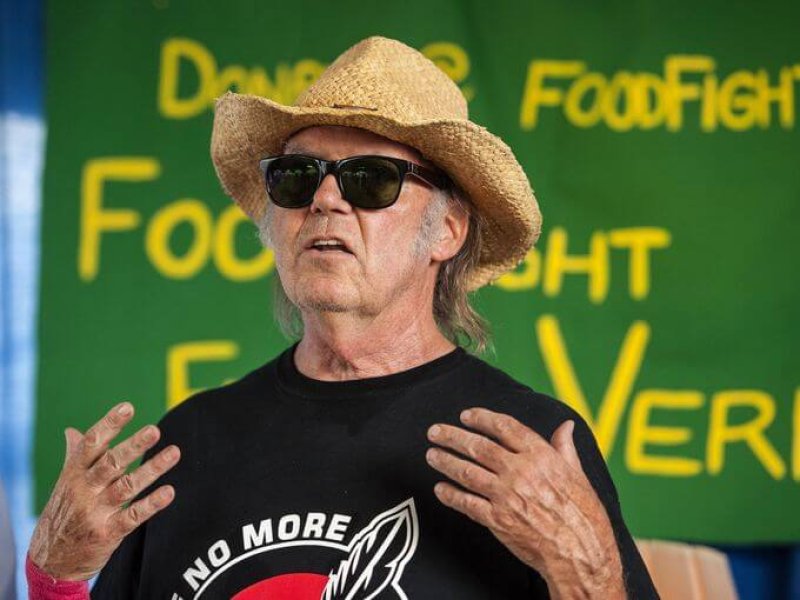Neil Young: Grammy-award winning musician and GMO-hater?
That’s the clear message from Young’s latest album, released earlier this summer.
“The Monsanto Years,” opens with “A Rock Star Bucks A Coffee Shop.” “Yeah I want a cup of coffee but I don’t want a GMO,” croons Young—and the hypocrisy is rich.
Diagnosed with type 1 diabetes as a child, Young’s life depends on insulin which is produced using genetic engineering. Prior to the 1970s, insulin was harvested from the pancreases of slaughtered pigs. Today genetically engineered microbes are used to “manufacture” insulin that’s far safer, more humane and cost-efficient.
“Monsanto, let our farmers grow what they wanna grow,” sings Young. Yet non-organic farmers on large and small farms overwhelmingly maintain that they choose to use GE crops in their fields because of the benefits they provide. After all, a meta-analysis shows that GM technology increased crop yields, reduced pesticide use, and increased farmer profits. Forced to grow these crops against their will? Hardly.
In addition, Young released a YouTube documentary as a follow-up to his album. Titled, “Seeding Fear: The Story of Michael White vs. Monsanto.” “It’s just not morally or economically right to be able to patent anything that reproduces,” White laments in the video. In reality there are thousands of patented plants including organic varieties. The documentary is just emotionally-tinged hype.
Every scientific oversight organization in the world agrees that GMOs are safe and environmentally friendly. Denying the evidence is no better than paranoia. Neil Young, don’t succumb to paranoia. Speak with farmers, mothers, and science advocates. Learn about genetic engineering. And remember—GMOs keep you and millions of other diabetics alive every day.
The GLP aggregated and excerpted this blog/article to reflect the diversity of news, opinion and analysis. Read full, original post: Note To Neil Young: Monsanto Isn’t Evil, And GMOs Are Harmless































